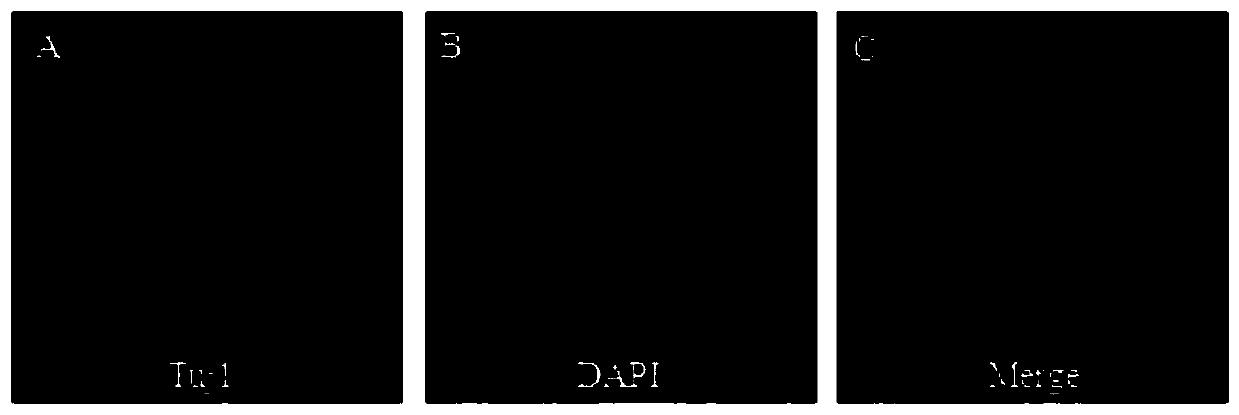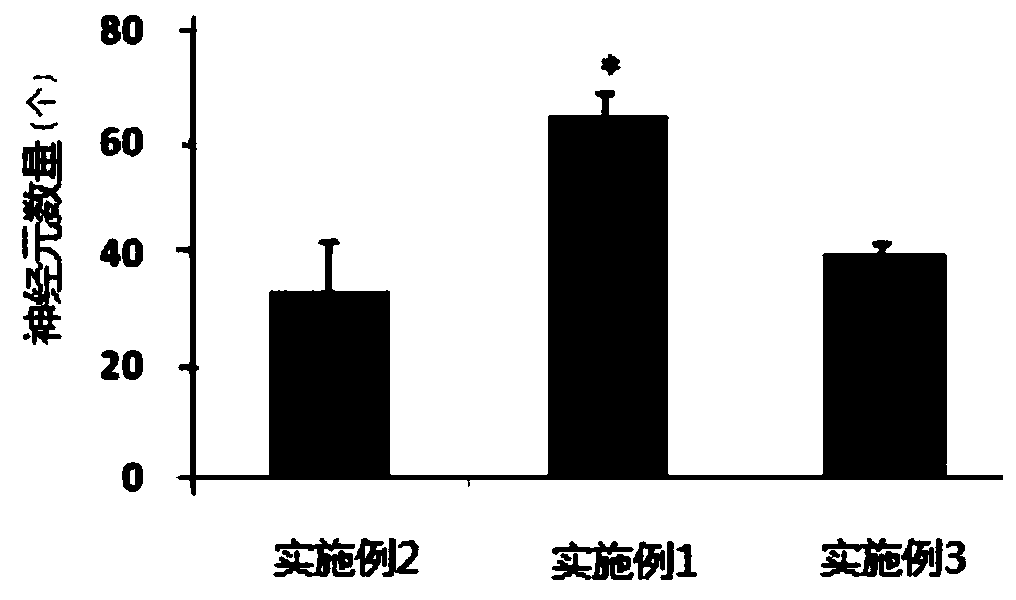Method for inducing neural stem cells in vitro to directionally differentiate into neurons
A neural stem cell and directional differentiation technology, applied in the field of in vitro induction of directional differentiation of neural stem cells into neurons, can solve the problems of lack of uniform standards, low differentiation ratio of neural stem cells, and low purity of neurons, so as to promote pure differentiation and high purity , good repeatability
- Summary
- Abstract
- Description
- Claims
- Application Information
AI Technical Summary
Problems solved by technology
Method used
Image
Examples
Embodiment 1
[0028] A method for inducing directional differentiation of neural stem cells into neurons in vitro, comprising the steps of:
[0029] (1) Primary culture of neural stem cells
[0030] Under sterile conditions, 14.5-day-pregnant ICR mice were sacrificed by dislocation of the cervical spine, soaked in 75% ethanol for 5-8 minutes, then transferred to an ultra-clean table for dissection, the fetal mice were taken out, and the brain cortex was separated, and then passed through 1×PBS After rinsing with DMEM / F12 solution, transfer to the growth medium containing 1% N2, 1% B27, 20ng / mL bFGF, 20ng / mL EGF, 97% DMEM / F12, and cut the brain tissue with dissecting scissors, Use a 1mL sterile pipette tip to blow repeatedly into a single-cell suspension. After the single-cell suspension is filtered through a 140-mesh nylon screen, transfer it to a 50ML centrifuge tube. The solution formula is: 1% N2, 1% B27, 20ng / mL bFGF, 20ng / mL EGF, 97% DMEM / F12) to adjust the cell density to 1×10 6 cel...
Embodiment 2
[0038] In step (3), the cell density of plating is 5×10 4 cells / mL, the rest are the same as in Example 1.
Embodiment 3
[0040] In step (3), the cell density of plating is 5×10 6 cells / mL, the rest are the same as in Example 1.
PUM
 Login to View More
Login to View More Abstract
Description
Claims
Application Information
 Login to View More
Login to View More - R&D
- Intellectual Property
- Life Sciences
- Materials
- Tech Scout
- Unparalleled Data Quality
- Higher Quality Content
- 60% Fewer Hallucinations
Browse by: Latest US Patents, China's latest patents, Technical Efficacy Thesaurus, Application Domain, Technology Topic, Popular Technical Reports.
© 2025 PatSnap. All rights reserved.Legal|Privacy policy|Modern Slavery Act Transparency Statement|Sitemap|About US| Contact US: help@patsnap.com



